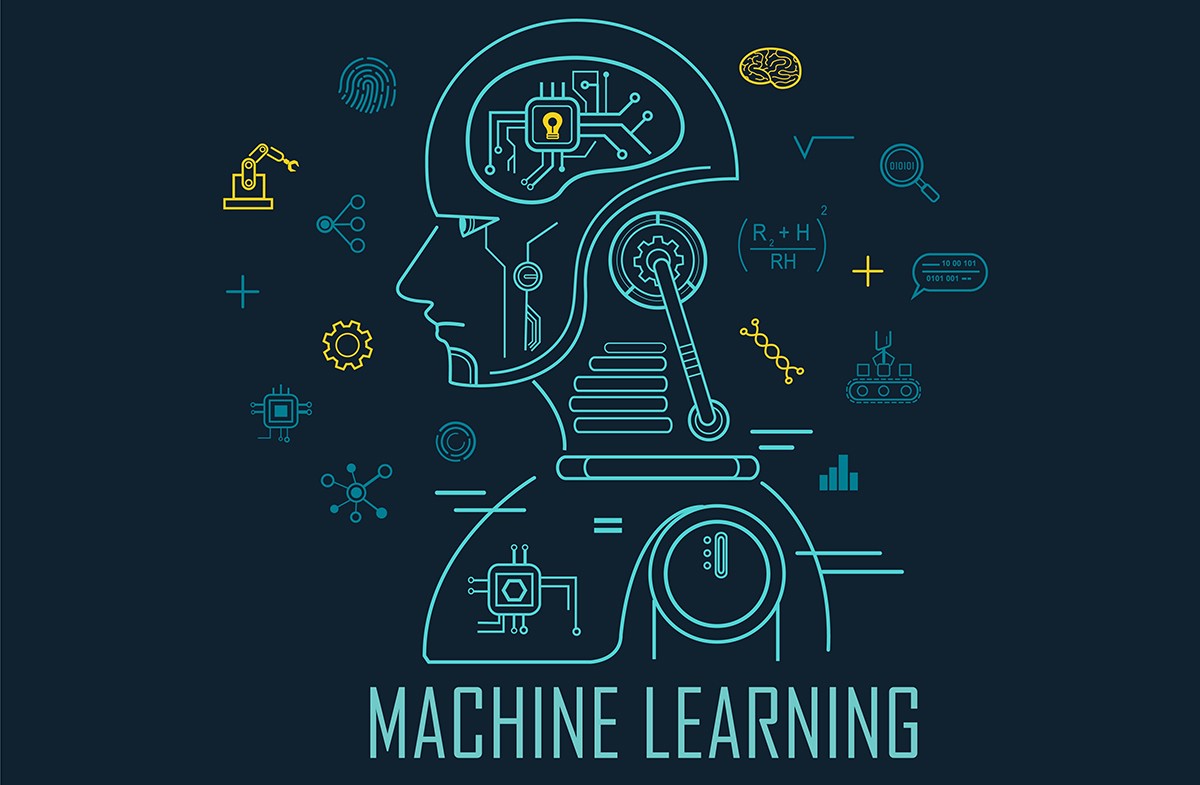Machine learning is artificial intelligence in which computers can learn without being explicitly programmed. Modern machine-learning algorithms learn to “decode” patterns in data to make predictions and optimize their decision-making. Here’s why you should care about machine learning algorithms, even if you’re not ready to implement them in your business or product.
What is Machine Learning?
Machine learning is a subset of artificial intelligence (AI) that enables computers to learn from data without being visibly programmed. This process can be done through a series of algorithms, which allow the machine to improve its accuracy over time as it gathers more data.
There are many reasons you might need machine learning in your business. One example is when you’re trying to predict customer behaviour. Using machine learning, you can create models that identify patterns in your data and use that information to predict future customer behaviour.
Another reason to use machine learning is to improve the accuracy of your existing processes. By using machine learning algorithms, you can automatically enhance the quality of your data by identifying errors and making corrections.
Finally, machine learning can create new processes or products on autopilot. By training a machine learning model on a data set, you can create an algorithm that will function independently and produce results similar to those produced by human experts.
How Machine Learning Works
Machine learning is a division of artificial intelligence that enables computers to learn from data without being explicitly programmed. The most common application of machine learning is predictive modelling, which uses documented data to predict future events. Machine learning algorithms can be classified into supervised and unsupervised categories, with supervised learning relying on labelled data (e.g. training data sets with known values). In contrast, unsupervised learning relies on unlabeled data (i.e. data sets without any information about the labels).
There are several different machine learning algorithms, each with unique strengths and weaknesses. Some well-known algorithms include Support Vector Machines (SVMs), Bayesian Networks, and neural networks. Each algorithm has pros and cons, so it’s important to choose the correct one for the task. Fortunately, many free resources are available online to help you get started with machine learning.
Why Do You Need It?
Machine learning is a subdivision of AI that uses algorithms to learn from data and improve performance over time. This ability can be used in a variety of ways, including for classifying data, predicting outcomes, and making recommendations.
There are many reasons you may need machine learning in your business. For example, if you have large amounts of data that needs to be classified or analyzed, machine learning can help automate the process. Additionally, machine learning can be a powerful tool if you want to predict future outcomes or make predictions about what customers will want. Finally, if you’re going to recommend products or services to your customers based on their past behaviour, machine learning can help do this more effectively than humans could.
What Can Machine Learning Do For You?
Machine learning is a branch of artificial intelligence that allows computers to learn without being explicitly programmed. Machine learning algorithms are trained on large data sets and can then be used to make predictions or decisions on new data. Machine learning can be used in various applications, including fraud detection, customer service, and predicting outcomes in the future.
One everyday use for machine learning is fraud detection. Fraudsters often try to hide their identities by using fake accounts or stolen information. Machine learning algorithms can be used to identify patterns in data and find signs of fraud. It can help banks prevent financial crimes from happening and save money overall.
Machine learning can also work to improve customer service. Customers may have different needs depending on the situation when they contact customer service. For example, if someone is having trouble downloading a file, they may need assistance downloading it quickly rather than providing all their personal information. Machine learning algorithms can be trained to automatically detect which customers need help based on their past interactions with customer service reps. It helps keep lines short for customers and saves customer service reps time and hassle.
Machine learning is also being used to predict outcomes in the future. For example, insurance companies may use machine learning to predict how likely someone is to file a claim based on past claims behaviour. It helps insurers save money by not paying out claims they know will happen in the future.
Difference Between Machine Learning And Human Intelligence?
Machine learning is a section of artificial intelligence that uses algorithms to improve performance on specific tasks without being explicitly programmed. Machine learning algorithms are designed to “learn” from data and improve over time, making predictions based on that data. It differs from traditional AI methods, which require a human programmer to design the algorithm and specify how it works.
Machine learning can be used for a wide range of applications, including:
– Predictive modelling: Used in finance, insurance, and other fields where accuracy is important, predictive models use machine learning algorithms to predict events or trends.
– Natural language processing: Applications like Google Translate rely heavily on machine learning to understand and translate text.
– Image recognition: Recognizing objects in photos or videos is essential for technologies like Face ID and autonomous cars.
– Text recognition: Apps like Siri and Google Now rely on machine learning to understand natural language queries.
While there are different types of machine learning algorithms available, all of them share some fundamental properties:
– They’re decentralized: Unlike traditional AI methods that a human programmer centrally controls, machine learning algorithms operate autonomously on data without requiring human input or supervision.
– They’re scalable: Many machine learning algorithms can be trained quickly using large amounts of data. It makes them well-suited for large-scale applications where speed is critical.
– They’re interpretable: Machine learning algorithms output numerical values that can be easily analyzed.
Functional Resumes and CVs for Machine Learning Professionals
It allows computers to learn from data without being explicitly programmed. It’s a key technology for understanding and predicting patterns in large datasets, which can be used in many fields, such as finance, marketing, and health care.
To become a machine learning professional, you must have a solid foundation in mathematics and computer science. You’ll also need experience using optimization algorithms and data preprocessing techniques. However, the most important skill you can develop is problem-solving ability. You must understand the data and the algorithm used to find the correct solution to a machine-learning problem.
Once you have all these skills, it’s time to look for opportunities to apply them. Machine learning has many different types of jobs available today, but some common positions include:
Data scientist: This role transforms raw data into insights that the machine learning algorithm can use. They often work with front-end developers who design the user interface so that humans and machines can access the data.
This role transforms raw data into insights that the machine learning algorithm can use. They often work with front-end developers who design the user interface so that humans and machines can access the data. Modeller: A modeller helps create predictive models using machine learning algorithms. They usually have experience working with statistical modelling and may also.
Conclusion
Machine learning helps computers “learn” from data. It means that the computer can identify patterns in data and then use this knowledge to make predictions or decisions. In practical terms, machine learning is used by businesses to improve their marketing efforts, predict customer behaviour, and more. If you’re worried about how it will impact your job, then understanding machine learning might be an excellent place to start. Thanks for reading!

